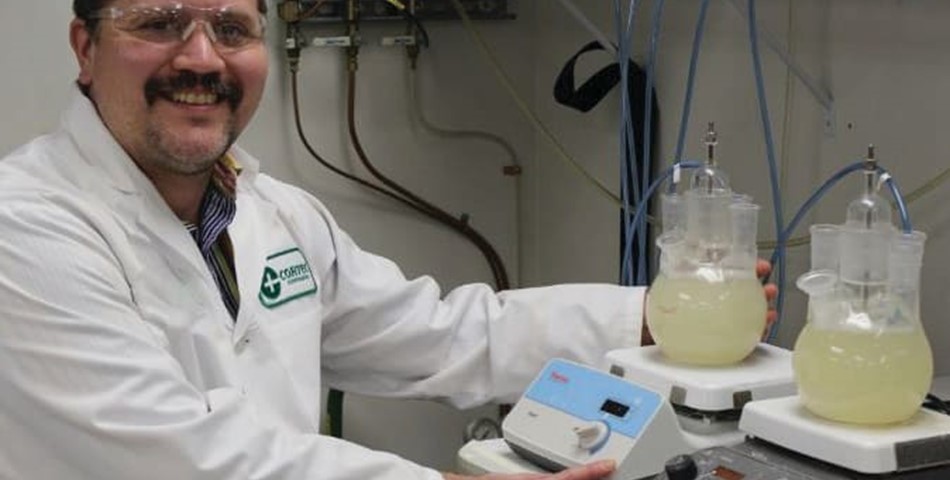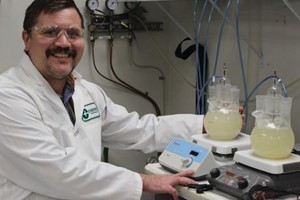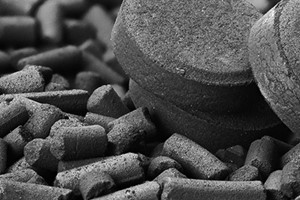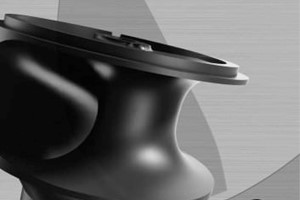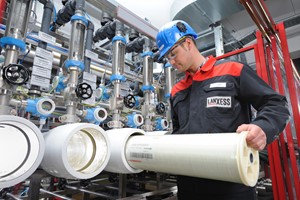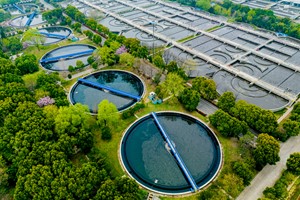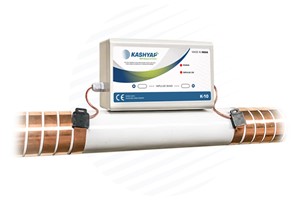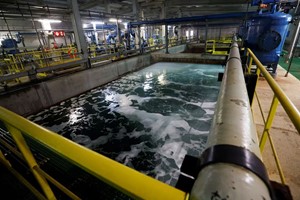Corrosion inhibitors are chemical products which, when added to water or to any other process fluid, slow down the rate of corrosion. They are normally classified as: anodic, cathodic, film-forming and oxygen-absorbing agents depending on their mode of action. The effectiveness of most corrosion inhibitors is significantly affected by the water’s chemical properties and by physical conditions such as temperature and flow velocity.
Corrosion inhibition is just one of the aspects of water treatment in industrial circuits; corrosion inhibition is always linked to the fight against scaling and to the prevention of microbiological growth. In practice, the use of corrosion inhibitors must be compatible with all other water treatments, circuit characteristics and operating parameters.
Water treatment chemicals are chemical formulations used for the decontamination and purification of water for commercial, municipal, and industrial purposes. The type and degree of water treatment strongly depend on the source of the water and its intended use. Water for domestic use has to be thoroughly disinfected to remove microorganisms before supply to households. On the other hand, industrial water may contain microorganisms, but must be treated to a certain extent to turn the water soft and to prevent scale formation and corrosion.
Application of scale corrosion inhibitor
A scale corrosion inhibitor is a substance applied to an environment and decreases corrosion rate in materials (mainly metals) subjected to that environment.
Scale corrosion inhibitor chemicals that make calcium/magnesium salts solvent and thus inhibit scale formation would be used in many situations. In bigger cooling systems, adding acid (sulphuric) to lower the pH and alkalinity minimizes the possibility of scale formation. It is also used as a scale control method.
It is the first line of defense in the fight against corrosion.
The following are the main advantages:
- Provides corrosion inhibition in a variety of closed recirculation structures.
- Prevention of Electrolytic corrosion
- Protects against erosion and cavitation.
- Shields metal surfaces.
- Works fine with antifreeze based on ethylene.
- Cleaning and maintenance costs reduction.
- It is cost-effective and straightforward to apply and use.
Global Water Treatment Chemicals Market Size to Reach $61B by 2026
The global water treatment chemicals market size was valued at $39.1 billion in 2021 and is projected to reach $61.1 billion by 2026 growing at a CAGR of 9.3% during the forecast period, according to a market research report by MarketsandMarkets.
The availability of clean water is declining, thus driving the demand for water treatment chemicals in around the world.
The primary energy demand of APAC is huge, mainly due to the continuous population growth. Its demand for electricity is projected to grow over 70% till 2035. The energy sector is, therefore, expected to drive the water treatment chemicals market growth in the region. The market in the region is growing at a steady rate due to the growing demand from end-use segments such as municipal water treatment, power generation, chemical, oil & gas, and mining. Urbanization and rising environmental awareness are driving rapid growth in urban water supply and wastewater treatment sectors.
Corrosion inhibitors is projected to be the largest type of segment in the water treatment chemicals market. Corrosion inhibitor is the best-known method of preventing corrosion and degradation of metal surfaces in equipment.
These types of inhibitors are substances, which under low concentration and extreme environment, inhibit, prevent, or minimize corrosion on metallic surfaces. Three mechanisms are used in administering the corrosion inhibitors, namely, chemisorption on metal surfaces, oxide protection of base metal, and reaction with a potential corrosive component in the aqueous solution. The use of poor-quality water in cooling systems and increased water recycling will boost the market for corrosion inhibitors during the forecast period. In addition, the increasing demand from the oil & gas industry will propel the market for this type of water treatment chemicals.
The demand for water treatment in the industrial sector is increasing due to rapid industrialization in developing countries and substantial growth in several key markets. Every industry consumes water for a variety of applications, including metal & mining, chemical processing, food & beverage, oil & gas, paper & pulp, and power generation that require water treatment chemicals to treat the usage of essential water.
A digital platform that can help wastewater utilities manage aeration and chemical use — which will in turn help significantly reduce energy use — is being offered by Xylem. Additionally, the US Department of Energy recently announced awards totaling $27.5 million for 16 water infrastructure projects. Modern technology has the potential to reduce energy use in aging water infrastructure, particularly in wastewater treatment.
Major players operating in the Water Treatment Chemicals Market include Kemira OYJ (Finland), Ecolab Inc. (US), Lonza (Switzerland), The Dow Chemical Company (US), Baker Hughes (US), BASF SE (Germany), Solenis LLC (US), Akzo Nobel N.V. (Netherlands), Snf Floerger (France), and Suez S.A. (France) among many others.




